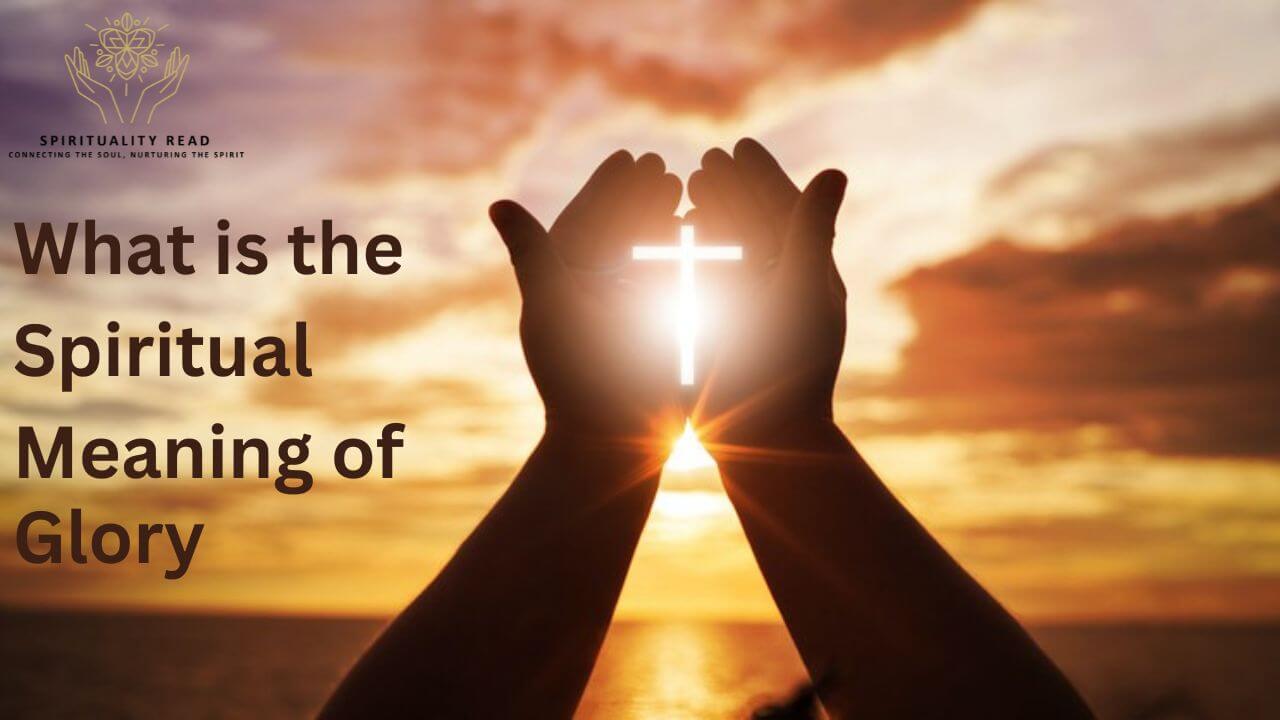In a world filled with diverse interpretations of spirituality, the concept of glory holds a profound and often mystifying significance.
It goes beyond the conventional understanding, delving into the realms of history, culture, and personal transformation.
Let’s embark on a journey to unravel the spiritual meaning of glory, exploring its various dimensions and impact on human lives.
Introduction
One often encounters the profound and enigmatic notion of glory in the intricate tapestry of spiritual concepts. It transcends cultural boundaries, finding a place in the core beliefs of various religions and philosophies.
This article aims to unravel the spiritual meaning of glory, exploring its interpretations across different faiths and its relevance in contemporary life.
Definition of Glory
“Glory” often conjures images of grandeur and splendor, but its spiritual connotation extends far beyond external manifestations. At its core, glory is a divine radiance or presence associated with profound spiritual significance.
Importance of Spiritual Meaning

Understanding the spiritual meaning of glory is crucial for those seeking deeper connections with the divine and a more fulfilling life. It adds layers of meaning to our existence, providing insights that transcend the material world.
Also Read: Spirituality in Culture: A Profound Connection
Glory in Different Religions
To truly grasp the essence of glory, we must first delve into its interpretations within different religious frameworks.
Glory in Christianity
In the Christian faith, glory is often associated with the divine radiance of God. Scriptures like Psalms 19:1 proclaim, “The heavens declare the glory of God, and the sky above proclaims his handiwork.”
Glory in Hinduism
In Hinduism, glory, known as “Kirti” or “Yash,” is entwined with divine and virtuous aspects. Found in Vedic hymns and Puranic tales, it attributes divine virtues to gods. Individuals seek glory by aligning with dharma (righteousness) and serving others.
Hindu philosophy views achieving moksha (liberation) as the pinnacle of divine glory. Through rituals and selfless acts, practitioners aim to partake in this divine radiance, weaving glory into the fabric of spiritual growth and devotion.
Glory in Buddhism
Buddhism, while often associated with simplicity, also acknowledges the concept of glory. For Buddhists, glory may manifest in the enlightenment attained through the Noble Eightfold Path, leading to the cessation of suffering.
Human Perspectives On Glory

Humans also have their perspectives on glory. In modern culture, the concept of fame is equated with glory and is related to material wealth, power, and influence. Glory can represent personal achievements, such as receiving accolades for a job well done or winning an award.
Historical Perspectives
Glory in Ancient Texts
Ancient scriptures and texts from various cultures often mention glory as a divine attribute. Whether in Greek mythology, Hindu scriptures, or biblical texts, the concept of glory is woven into the fabric of human history, carrying diverse interpretations.
Cultural Interpretations
Different cultures have ascribed unique meanings to glory, shaping their beliefs and practices. Exploring these cultural perspectives provides a rich tapestry of understanding, showcasing the universality of the spiritual quest for glory.
Spiritual Dimensions
Spiritual dimensions encompass the transcendent aspects of human existence, beyond the material. It involves exploring consciousness, inner realms, and a connection with the divine.
Practices like meditation open pathways to these dimensions, offering insights into purpose and interconnectedness.
Glory in Religious Contexts
Within religious frameworks, glory is often associated with the divine presence. Whether it’s the glory of God in Christianity, the radiant glory in Hinduism, or the enlightened glory in Buddhism, spiritual seekers find a common thread in the pursuit of divine connection.
Symbolism and Significance
Glory is laden with symbolism, representing virtues like enlightenment, purity, and transcendence. Understanding the symbolic language of glory deepens our spiritual insights, allowing us to grasp the profound meanings behind these metaphors.
The Role of Glory in Personal Development
Beyond its religious connotations, glory plays a crucial role in personal development. Embracing the concept can lead to a transformative journey, influencing mindset and fostering a positive outlook.
Glory in Everyday Life
The integration of glory into daily life involves recognizing the sacred in the mundane. Simple acts of kindness, genuine connections with others, and an appreciation for life’s beauty contribute to a sense of spiritual glory.
Contemporary Views on Glory
In the contemporary world, spiritual leaders and thinkers continue to explore and reinterpret the concept of glory. Incorporating ancient wisdom into modern life, individuals find new ways to connect with the spiritual dimension.
Conclusion
In conclusion, the spiritual meaning of glory transcends religious boundaries, influencing personal development, daily life, and artistic expression.
Embracing glory involves recognizing the divine in all aspects of existence, fostering gratitude, and navigating challenges with resilience.
It is a universal concept that speaks to the core of human experience, inviting individuals to embark on a journey of spiritual fulfillment.
Also Read: What is the Spiritual Meaning of Fish in a Dream?

